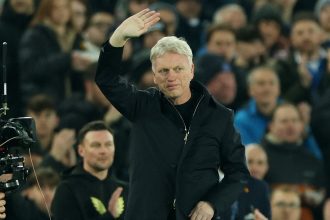da fazobetai: Wright’s professionalism was seen immediately in the use of the latestcomputer technology to formulate crucial strategies
da bwin: Partab Ramchand07-Nov-2001It has been a year now since John Wright took over as the Indiancricket coach, and this is as good a time as any to look back on whathas been an eventful year for Indian cricket. It would be worthwhileto examine Wright’s personal contribution to a rather dramatic phasein which the Indian team has had its fair share of ups and downs.It must be recalled that Wright took over the position at a verycritical juncture. Kapil Dev, his predecessor, resigned midway throughhis two-year term after playing a cat-and-mouse game with the Board ofControl for Cricket in India in the wake of the match-fixingallegations hurled at him. Secondly, it was not smooth sailing even asWright was appointed. No one doubted his credentials as a player,captain and coach, but criticism centered around whether a foreigncoach was the panacea to the ills plaguing the Indian team. Many feltthat there were enough former Indian players with the necessaryqualifications. Thirdly, Wright himself had to fend off thecandidatures of Greg Chappell and Geoff Marsh to get the job. But hedid have the backing of former Australian captain Bobby Simpson, whohad served in the capacity of advisor for some time, and Rahul Dravid,who already seen at close quarters Wright’s style of functioning whilefulfilling his contract with Kent last summer.
Wright’s professionalism was seen immediately in the use of thelatest computer technology to formulate crucial strategies. This wasan aspect that no Indian coach had covered. On landing in India, hewent straight to Bangalore to purchase the right software. The victorious series against Zimbabwe last November was the firstwith Wright in charge. There was certainly no overnight transformationin Indian cricket, but, over the past year, there is little doubt thatthere has been a certain professionalism in the approach. Greateremphasis has been laid on matters of fielding and physical fitness,and, while he has also touched upon some of the basics, aspects likerunning between the wickets remain a problem. But he has definitelybeen responsible for making the players mentally tougher, not sparinganyone, and his frank appraisals have gone down well. His honesty ispatent, and his observations are analytical and to the point.At the time he took over, Wright said “discipline and team effort”were the two aspects on which he would concentrate. In an interview,he said, “I believe in discipline and team effort. Individualachievements are not all that important. I want all the 11 players inthe team to function as a unit.” It was just as well, for a commoncomplaint was that the Indians looked strong as individuals but weakas a team. He also made it clear that his main target was the WorldCup in South Africa. “I will be building up the team keeping in mindthe 2003 World Cup. I firmly believe that India has the talent tomatch any other side in international cricket,” he said.There was another positive aspect to Wright’s appointment. Boardcircles felt that he would not be biased towards any of the factionsthat normally exist in the Indian set-up. From this viewpoint, it hasbeen a healthy sign since the players have been encouraged to performbetter and not expect any favouritism whatsoever from the coach. Butthen, in all his roles, Wright has been a quiet achiever. Never onefor the grandiose stance or plans, his motto has been simple andstraightforward – knuckle down and do your job well.Wright’s professionalism was seen immediately in the use of the latestcomputer technology to formulate crucial strategies. This was anaspect that no Indian coach had covered. On landing in India, he wentstraight to Bangalore to purchase the right software. He also insistedthat instilling the pride of playing for the country would be thetopmost priority, a happy theory, for what is a coach if not amotivator?By having the knack of saying the right thing at the right time, therewere indications that he was the right man for Indian cricket. Overthe past year, he has developed a close rapport with the captain, theplayers and the physio. And, even if the results have not exactly beenspectacular, they have not been poor either. Far from it, in fact. Anybalance sheet that displays arguably the greatest series triumph athome has to have a healthy, if not opulent, overall look.Indian cricket followers have always been impatient. Expecting fastresults, we are too quick to hire and fire, when what is really neededis understanding, patience and perseverance. There are certaininherent weaknesses in Indian cricket that Wright is working on. Thesewill not go away overnight. He himself made it clear at the beginningof his tenure that he was building a team for the 2003 World Cup. Letus give him time till then.






